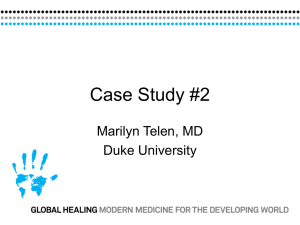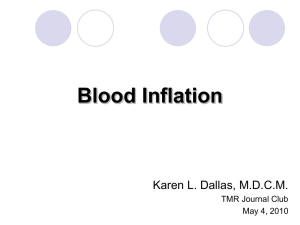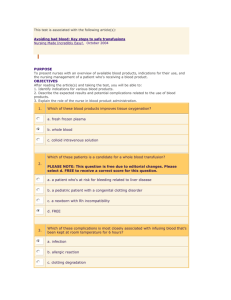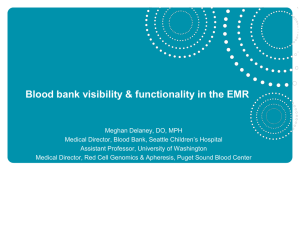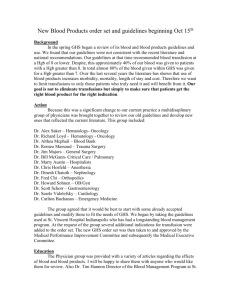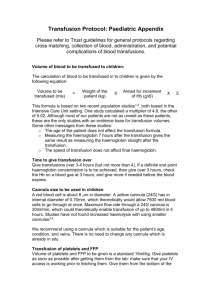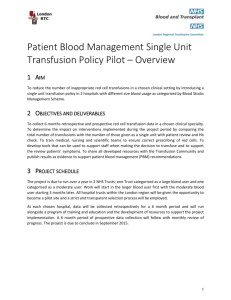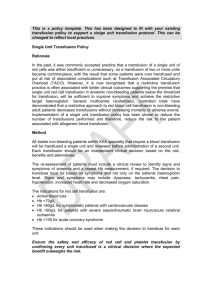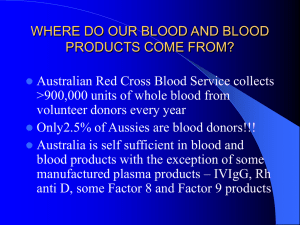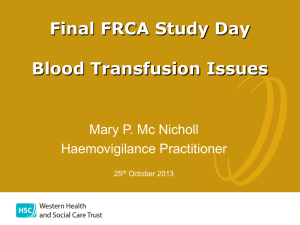A study investigating transfusion-related complications in patients
advertisement
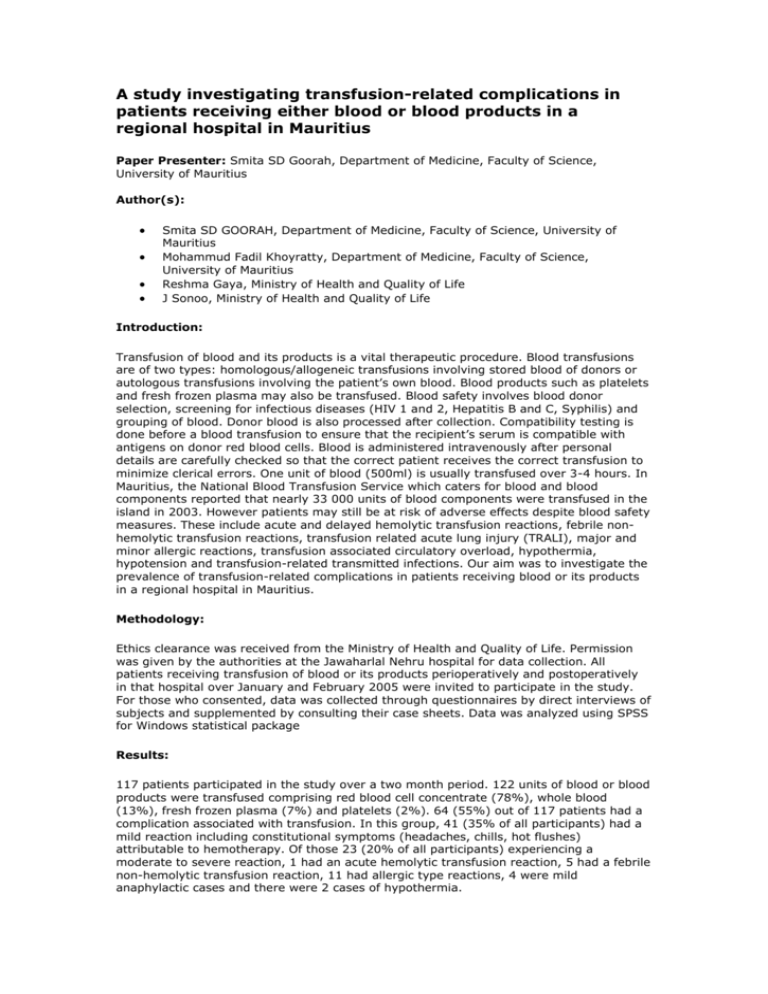
A study investigating transfusion-related complications in patients receiving either blood or blood products in a regional hospital in Mauritius Paper Presenter: Smita SD Goorah, Department of Medicine, Faculty of Science, University of Mauritius Author(s): Smita SD GOORAH, Department of Medicine, Faculty of Science, University of Mauritius Mohammud Fadil Khoyratty, Department of Medicine, Faculty of Science, University of Mauritius Reshma Gaya, Ministry of Health and Quality of Life J Sonoo, Ministry of Health and Quality of Life Introduction: Transfusion of blood and its products is a vital therapeutic procedure. Blood transfusions are of two types: homologous/allogeneic transfusions involving stored blood of donors or autologous transfusions involving the patient’s own blood. Blood products such as platelets and fresh frozen plasma may also be transfused. Blood safety involves blood donor selection, screening for infectious diseases (HIV 1 and 2, Hepatitis B and C, Syphilis) and grouping of blood. Donor blood is also processed after collection. Compatibility testing is done before a blood transfusion to ensure that the recipient’s serum is compatible with antigens on donor red blood cells. Blood is administered intravenously after personal details are carefully checked so that the correct patient receives the correct transfusion to minimize clerical errors. One unit of blood (500ml) is usually transfused over 3-4 hours. In Mauritius, the National Blood Transfusion Service which caters for blood and blood components reported that nearly 33 000 units of blood components were transfused in the island in 2003. However patients may still be at risk of adverse effects despite blood safety measures. These include acute and delayed hemolytic transfusion reactions, febrile nonhemolytic transfusion reactions, transfusion related acute lung injury (TRALI), major and minor allergic reactions, transfusion associated circulatory overload, hypothermia, hypotension and transfusion-related transmitted infections. Our aim was to investigate the prevalence of transfusion-related complications in patients receiving blood or its products in a regional hospital in Mauritius. Methodology: Ethics clearance was received from the Ministry of Health and Quality of Life. Permission was given by the authorities at the Jawaharlal Nehru hospital for data collection. All patients receiving transfusion of blood or its products perioperatively and postoperatively in that hospital over January and February 2005 were invited to participate in the study. For those who consented, data was collected through questionnaires by direct interviews of subjects and supplemented by consulting their case sheets. Data was analyzed using SPSS for Windows statistical package Results: 117 patients participated in the study over a two month period. 122 units of blood or blood products were transfused comprising red blood cell concentrate (78%), whole blood (13%), fresh frozen plasma (7%) and platelets (2%). 64 (55%) out of 117 patients had a complication associated with transfusion. In this group, 41 (35% of all participants) had a mild reaction including constitutional symptoms (headaches, chills, hot flushes) attributable to hemotherapy. Of those 23 (20% of all participants) experiencing a moderate to severe reaction, 1 had an acute hemolytic transfusion reaction, 5 had a febrile non-hemolytic transfusion reaction, 11 had allergic type reactions, 4 were mild anaphylactic cases and there were 2 cases of hypothermia. Discussion and conclusion: Acute hemolytic transfusion reactions occur mostly as a result of human error and are largely avoidable. In our study the prevalence of this serious reaction was 0.85%; it has been noted in other studies that febrile non-hemolytic transfusion reactions occur in 1% of red cell transfusions and in18-23% of cases of platelet transfusions. In our study, this reaction occurred in 4.3% of the sample. It was significant that there were no other serious life-threatening complications such as bacterial contamination, coagulopathy, heart failure or TRALI. Thus we can conclude from our study that although 35% of patients had a mild complication and 20% had a moderate to severe complication, life-threatening complications were rare demonstrating that transfusion of blood or its products in a hospital setting in Mauritius is relatively safe.
